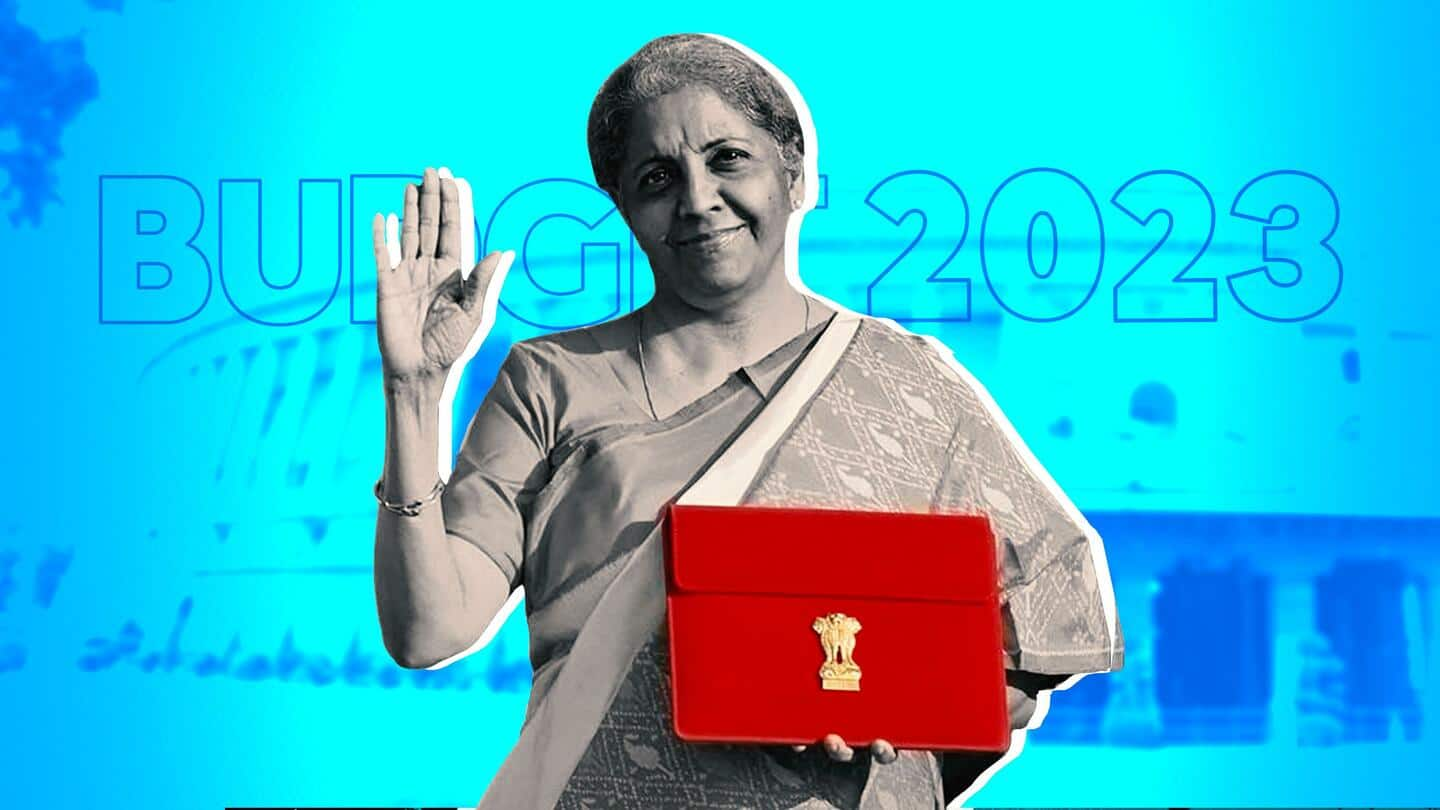
Budget Session: Nirmala Sitharaman tables 2023 Economic Survey in Parliament
What's the story
Finance Minister Nirmala Sitharaman on Tuesday tabled the Economic Survey 2022-23 in Parliament, following President Droupadi Murmu's maiden address to a joint session of Lok Sabha and Rajya Sabha, marking the start of the Budget Session. It forecasted India's economic growth in 2023-24 at 6.5%, lower than 7% for the current fiscal and 8.7% for 2021-22, adding India will remain the world's fastest-growing economy.
Context
Why does this story matter?
The Economic Survey predicts a baseline gross domestic product (GDP) of 6.5%, which it says is comparable to projections put forth by multilateral agencies. Meanwhile, the International Monetary Fund (IMF) forecasted India's growth at 6.1% for the fiscal year 2023, compared to the current rate of 6.8%, calling it "a bright spot." Notably, on Wednesday, Sitharaman will present her fifth Union Budget since 2019.
Survey
India's economy recouped from the COVID-19-induced slowdown
The survey stated India's current account deficit might continue to increase amid the heightened global commodity prices, adding the Indian rupee could come under pressure. It noted India is the world's third-largest economy in terms of purchasing power parity (PPP) and fifth in terms of the exchange rate. The economy has almost recovered, leaving behind the slowdown triggered by the COVID-19 pandemic, it said.
Details
6.8% inflation to maintain balance of private consumption and investment
The survey underlined the Reserve Bank of India's (RBI) projection of 6.8% inflation in the current fiscal would neither put off private consumption nor weaken investment. It added borrowing costs could remain high for longer owing to "entrenched inflation" and the subsequent prolonged tightening cycle. The depreciation of the Indian rupee is dependent on the interest rate hikes by the US Federal Reserve System.
CAD
Close monitoring of CAD necessary: Economic Survey
The survey also called for the close monitoring of the current account deficit (CAD), which is likely to widen due to the rising global commodity prices. The latest RBI data shows the CAD shot up to 4.4% of the GDP in the quarter that ended in September from 2.2% in the April-June period owing to a higher trade gap.
Information
Centre's capital expenditure major driver of economy
The survey said the budget target of Rs. 7.5 lakh crore for the current fiscal would likely be met. It added the central government's capital expenditure (capex) grew 63.8% year-on-year in the first eight months of FY23, emerging as a major driver of the economy.